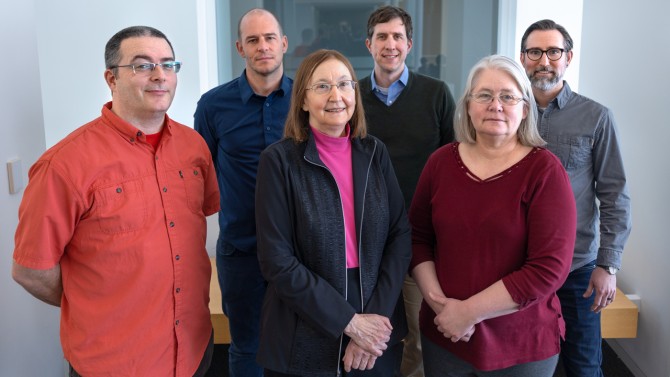A Cornell multidisciplinary research center that studies chronic fatigue syndrome has received a five-year, $9.5 million grant from the National Institutes of Health’s National Institute of Allergy and Infectious Disease – funding that will enable experts from disparate fields to work together on the mysterious and debilitating condition.
The Cornell
Center for Enervating Neuroimmune Disease, established in 2017, ultimately seeks to understand the biological basis and develop a treatment for myalgic encephalomyelitis/chronic fatigue syndrome (ME/CFS), a disabling disorder for which there are currently no effective therapies.
ME/CFS affects an estimated 3 million people in the United States and some 65 million worldwide, causing some to be ill for decades and unable to work. The disease leads to overwhelming fatigue that rest does not alleviate. Symptoms may include brain fog, body pains, headaches, difficulty sleeping and prolonged increases in symptoms after mild physical exertion or exercise.
, Click to open gallery view
Credit: Noël Heaney/Cornell University
From left, Andrew Grimson, associate professor in the Department of Molecular Biology and Genetics in the College of Arts & Sciences; Iwijn De Vlaminck, associate professor in the Cornell Meinig School of Biomedical Engineering; Maureen Hanson, Liberty Hyde Bailey Professor in CALS; Ben Cosgrove, associate professor in the Cornell Meinig School of Biomedical Engineering; Jen Grenier, director of the Genomics Innovation Hub in the Cornell Institute of Biotechnology; and Carl Franconi, administrative manager of the Center for Enervating Neuroimmune Disease.
“What is desperately needed in ME/CFS are effective treatments that not only improve certain symptoms, but actually ameliorate the whole disease, so that people can get their lives back,” said
Maureen Hanson, Liberty Hyde Bailey Professor in the College of Agriculture and Life Sciences (CALS), who is the center’s director and co-principal investigator of the grant, which starts on April 1.
“When we started the Center in 2017, our goal was to take a broad interdisciplinary approach, with the hope that we would find specific molecular changes in ME/CFS; now that we have found these changes, we can target our research on these changes and understand their impact, ultimately moving towards a cure,” said
Andrew Grimson, associate professor in the Department of Molecular Biology and Genetics in the College of Arts and Sciences, the center’s associate director and co-principal investigator on the grant.

